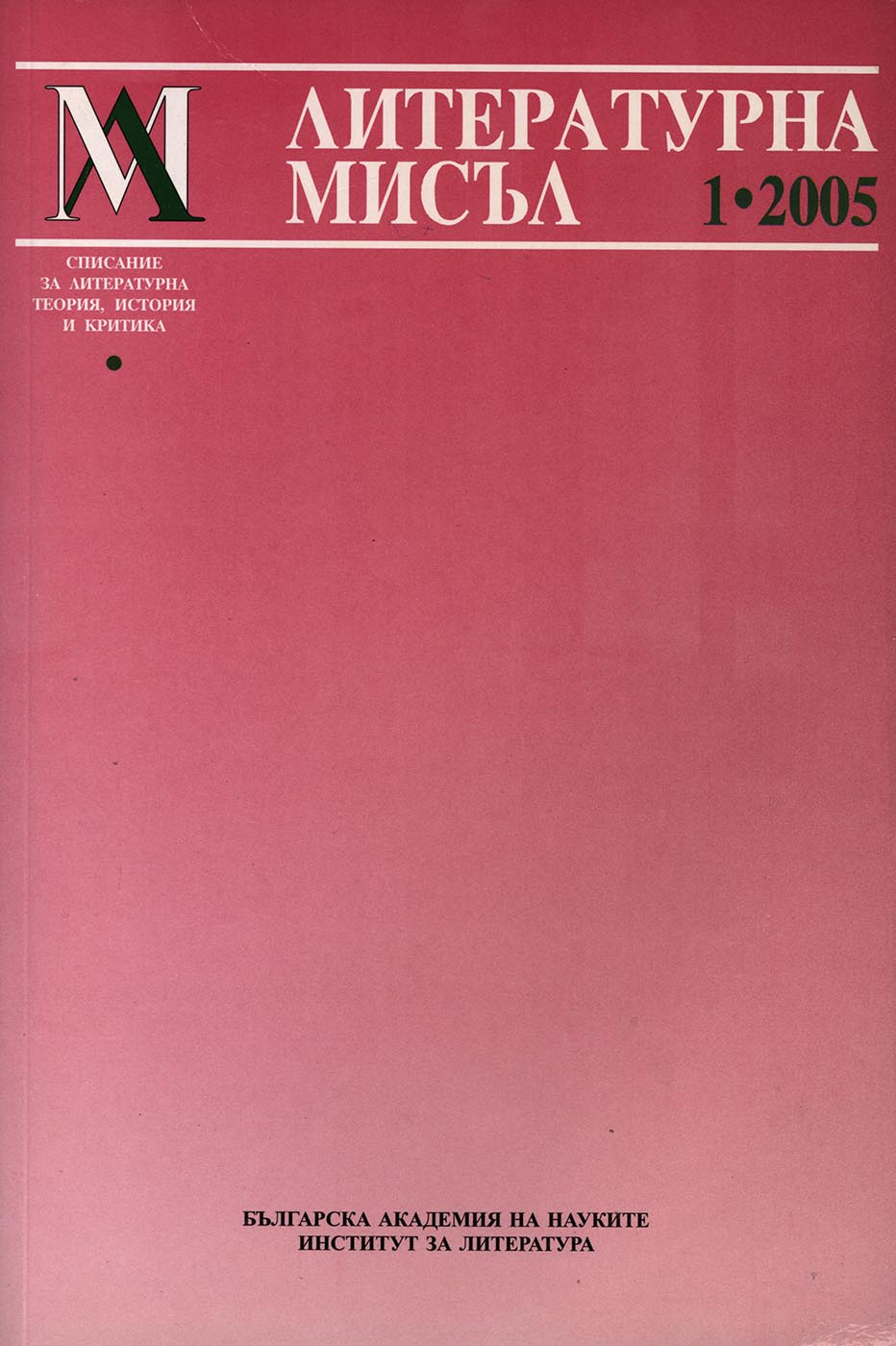"По дрехите посрещат..." или външният вид в културологимната антитеза Изток-Запад
„Handsome is, handsome does“, Or Outward Appearance in the Cultural Antithesis East — West
Author(s): Radoslava IlchevaSubject(s): Literary Texts
Published by: Институт за литература - БАН
Summary/Abstract: For centuries Russia perceived the Europeans mainly through their outward appearance. Throughout the Middle Ages the foreign clothing was a serious and even a prime obstacle (together with language) in the act of the communication between different nations; it was not even a standing jest, but a target of a total and furious denial. To a considerable extent it provoked an undisguised hostility and modeled the negative Russian notions of the West. Placed in the paradigm of the confessional incompatibility between the Orthodoxy and the „Latin heresy“ of a Westerner, it turns out to be a signal for a more serious danger of a cultural invasion. Since it is a sign of belonging to a world both „horizontally and vertically“ opposite to the Holy Rus, the devil in the Old Russian texts appears sometimes dressed as a Pole, other times as a German. In this context the „Handsome is, handsome does“ saying implicitly reveals the reception of the Self. The obsession with clothing and respectively with outward appearance was so strong, that for centuries the personal duality of the Other was ignored. With the development of trade and diplomatic relations with the European neighbors, these tendencies did not weaken, but sharpened and reached their climax on the borderline between the Old and the New Age (late 17th — early 18th century). During this critical and dramatic period of the traditional Russian mentality the outward appearance of the Westerner acquired impressive dimensions with its conflict, which reflects in some way even the present days.
Journal: Литературна мисъл
- Issue Year: 2005
- Issue No: 1
- Page Range: 105-113
- Page Count: 9
- Language: Bulgarian
- Content File-PDF

